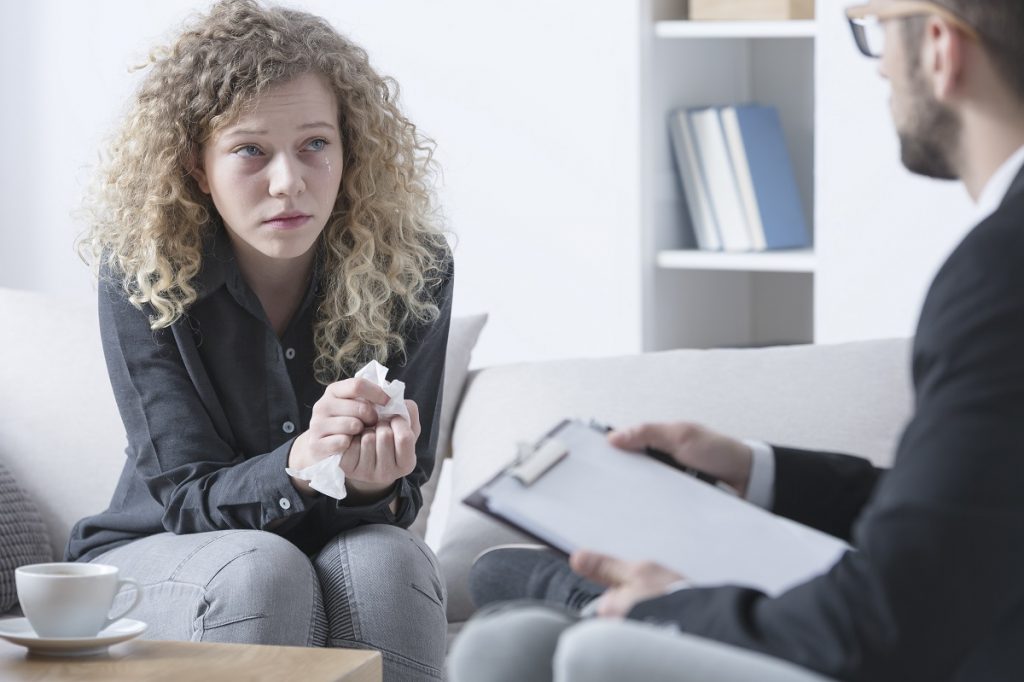Polycystic ovary syndrome (PCOS) is a common hormone disorder that affects millions of women worldwide. It’s not known what exactly causes the condition and its symptoms, but what’s clear is it’s essentially a manifestation of a hormone imbalance. Women with PCOS produce a higher amount of androgen in their body, which gets in the way of the normal egg development and release cycle. This triggers a range of symptoms, including weight gain, reduced fertility, acne, and excessive facial or body hair — but these are only the most common symptoms. What people don’t talk about is the effect it has on mental health.
Research has shown that women with this condition are more predisposed to mental health problems, particularly anxiety and depression. Surveys have shown that almost 27% to 50% of women with PCOS have reported feeling depressed, in stark contrast to only 19% of women who don’t have the condition. There aren’t any conclusive reasons as to why they occur together, but there are several hypotheses as to why this may be.
The following are a few reasons that may point to why women who suffer from PCOS are also more susceptible to experiencing mental health problems.
Stress
The numerous symptoms of PCOS can trigger stress, particularly over the very obvious physical changes such as weight gain, acne, hair loss, and excessive body and facial hair. As a result, negative body image contributes to anxiety and depression.
Obesity
Women with PCOS are more likely to be obese than women who don’t have it. Obesity can be both a symptom of depression and the cause of it. Depression causes low energy which results in a sedentary lifestyle, overeating, and poor dietary choices, which eventually lead to weight gain. Similarly, obesity can cause feelings of sadness and anxiety.
Inflammation
PCOS is also characterized by increased inflammation in the body. This is directly related to high cortisol levels which causes anxiety, stress, and depression.
Oral Contraceptives
One of the most common forms of treatment that OB-GYNs recommend for this condition is the use of oral contraceptives to regulate periods and prevent endometriosis, ovarian cancer, or endometrial (uterine) hyperplasia. However, the use of birth control pills has been known to cause mood swings and depression.
What can be done about it?
There are many treatment plans available to women who are experiencing depression and anxiety linked to PCOS. Often, these treatments can address both PCOS symptoms and depressive symptoms at the same time. The following are just a few options to consider.
Therapy. One of the most effective treatments for anxiety and depression is therapy. These are just a few different types of therapy to look into:
- Dialectical Behavior Therapy (DBT) is a type of talk therapy that helps people manage intense emotions and commit themselves to positive change
- Cognitive Behavioral Therapy (CBT) is similar to DBT but it involves less group work and focuses more on developing healthy coping mechanisms and thinking patterns
- Support groups and Peer Counseling allows people to meet others who are experiencing a similar situation and allows them to freely discuss their issues either as a group or with a peer without judgment
- Psychodynamic Therapy finds the root cause of negative behavioral patterns by looking to the past and finding productive ways to move forward
- Interpersonal Therapy deals with issues concerning relationships with other people
Lifestyle Adjustments. Adopting a healthy diet and a consistent exercise routine can do wonders for depression and anxiety. It can also address problems linked to obesity. Doctors recommend at least 150 minutes of moderate physical activity or 75 minutes of strenuous physical exercise a week. A low-carb diet or a Mediterranean diet is also highly recommended for women suffering from PCOS.
Mindfulness. Yoga, breathing exercises, and meditation have been known to improve the mood and mental well-being of those who suffer from mental health problems. Even just 30 minutes of practicing mindfulness habits have been known to make people feel more relaxed and happy.
Self-care. If the feelings of anxiety and depression are rooted in body image issues, self-care, and beauty treatments can be an effective way to stave off these negative emotions. For example, skin treatments can address acne, diet and exercise can help with obesity, and laser hair removal can be used to treat excessive facial and body hair.
Medication. Psychiatrists may recommend anti-depressants or anti-anxiety medication if the depressive symptoms are especially troublesome. They’re generally not recommended as the first line of defense against depression and anxiety for women with PCOS because of the many side effects that accompany them. It’s important to speak with a medical professional before taking them and consider alternative treatment options first.
PCOS can be an incredibly inconvenient condition to have, especially since it causes a wide range of symptoms, not least of which include mental health problems. However, it shouldn’t stop women from living their best life, especially when there are so many treatment options available.

